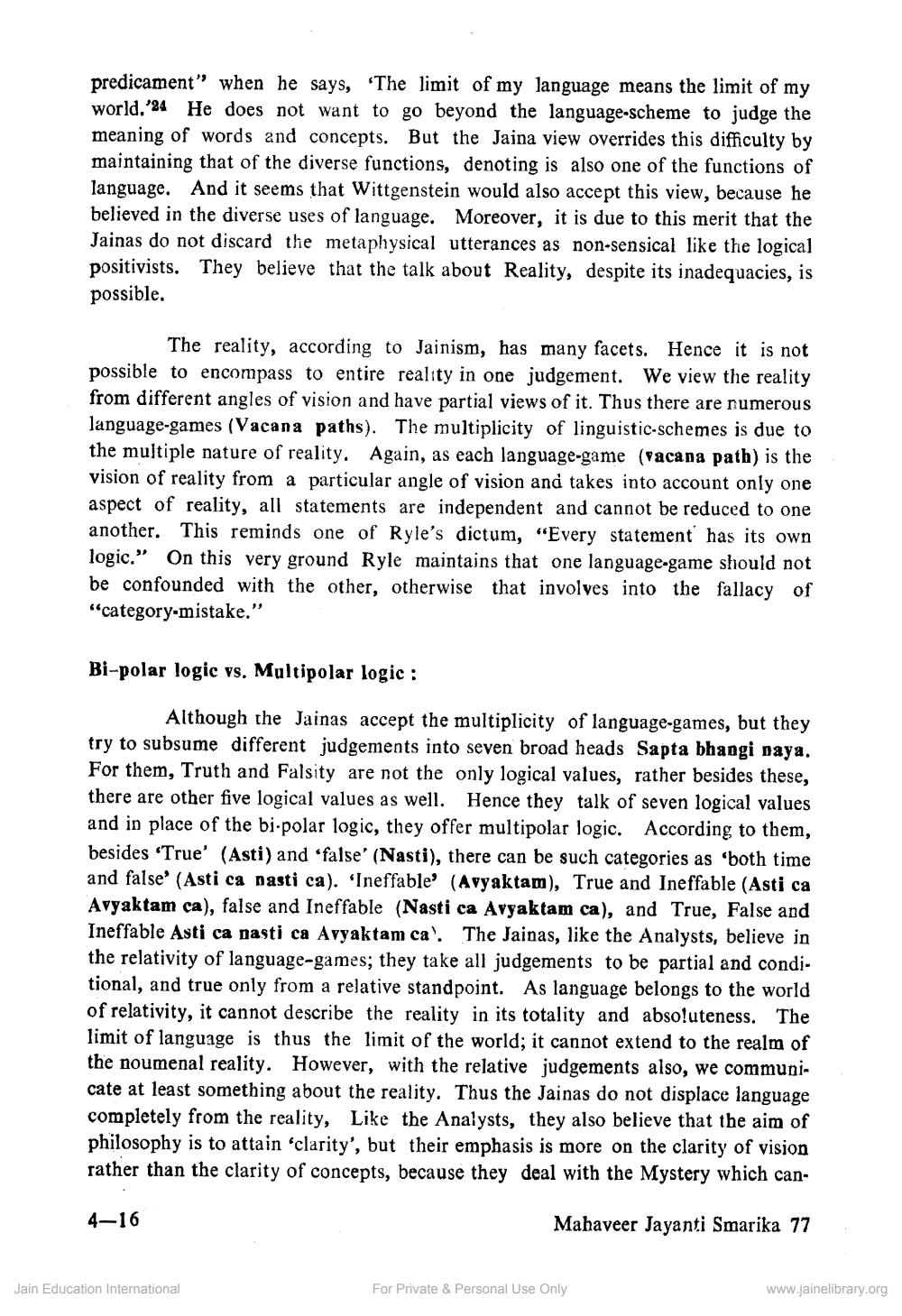________________
predicament" when he says, 'The limit of my language means the limit of my world.'24 He does not want to go beyond the language-scheme to judge the meaning of words and concepts. But the Jaina view overrides this difficulty by maintaining that of the diverse functions, denoting is also one of the functions of language. And it seems that Wittgenstein would also accept this view, because he believed in the diverse uses of language. Moreover, it is due to this merit that the Jainas do not discard the metaphysical utterances as non-sensical like the logical positivists. They believe that the talk about Reality, despite its inadequacies, is possible.
The reality, according to Jainism, has many facets. Hence it is not possible to encompass to entire reality in one judgement. We view the reality from different angles of vision and have partial views of it. Thus there are numerous language-games (Vacana paths). The multiplicity of linguistic-schemes is due to the multiple nature of reality. Again, as each language-game (vacana path) is the vision of reality from a particular angle of vision and takes into account only one aspect of reality, all statements are independent and cannot be reduced to one another. This reminds one of Ryle's dictum, "Every statement has its own logic." On this very ground Ryle maintains that one language-game should not be confounded with the other, otherwise that involves into the fallacy of "category-mistake."
Bi-polar logic vs. Multipolar logic:
Although the Jainas accept the multiplicity of language-games, but they try to subsume different judgements into seven broad heads Sapta bhangi naya. For them, Truth and Falsity are not the only logical values, rather besides these, there are other five logical values as well. Hence they talk of seven logical values and in place of the bi-polar logic, they offer multipolar logic. According to them, besides 'True' (Asti) and 'false' (Nasti), there can be such categories as 'both time and false' (Asti ca nasti ca). 'Ineffable' (Avyaktam), True and Ineffable (Asti ca Avyaktam ca), false and Ineffable (Nasti ca Avyaktam ca), and True, False and Ineffable Asti ca nasti ca Avyaktam ca'. The Jainas, like the Analysts, believe in the relativity of language-games; they take all judgements to be partial and conditional, and true only from a relative standpoint. As language belongs to the world of relativity, it cannot describe the reality in its totality and absoluteness. The limit of language is thus the limit of the world; it cannot extend to the realm of the noumenal reality. However, with the relative judgements also, we communicate at least something about the reality. Thus the Jainas do not displace language completely from the reality, Like the Analysts, they also believe that the aim of philosophy is to attain 'clarity', but their emphasis is more on the clarity of vision rather than the clarity of concepts, because they deal with the Mystery which can
4-16
Mahaveer Jayanti Smarika 77
Jain Education International
For Private & Personal Use Only
www.jainelibrary.org




